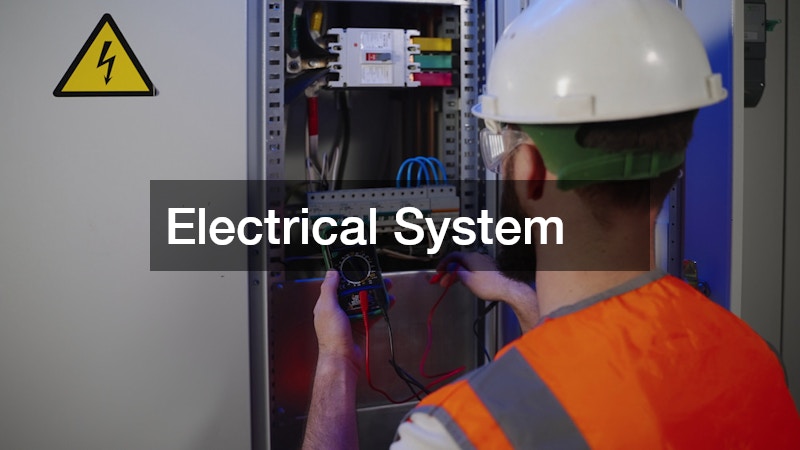Roof & Attic
Roof inspections are paramount in maintaining the integrity and durability of a home. These assessments can reveal damage or wear that might not be visible from the ground. Regular inspections can help prevent costly repairs by identifying problems early. They often include a thorough examination of shingles, flashing, and the overall structure.
There are 5 reasons to get a home inspection, particularly focusing on the roof. First, inspections can identify potential leaks that can lead to water damage. Second, they assess the age and condition of the roofing materials. Third, they evaluate the attic’s ventilation and insulation, crucial for energy efficiency. Each of these reasons contributes to extending the life of your roof and maintaining the home’s structural integrity.
Beyond those points, another reason involves ensuring compliance with local building codes. A roof that is not up to standard can pose safety risks and affect the home’s resale value. Inspections also help you negotiate maintenance or replacement with previous owners before the transaction is finalized.
Plumbing
The plumbing system is among the most critical components of any residence. Plumbing experts are instrumental in conducting a thorough inspection to ensure there are no hidden issues. They evaluate everything from pipe materials to water pressure to potential leaks.
Engaging a reliable plumbing repair service is one of the 5 reasons to get a home inspection. It prevents minor leaks from escalating into significant water damage. Additionally, identifying and repairing issues upfront can save homeowners from unexpected costs. Inspectors often focus on areas prone to leaks, such as under sinks and around toilets.
Moreover, a home inspection will assess the water heater repair requirements if necessary. An inefficient water heater can drastically increase energy bills. By conducting a comprehensive review, inspectors ensure the water heater is working effectively, extending its lifespan.

Electrical System
A home’s electrical system is a web of wires and circuits that require precise and expert handling. Hiring an electrician or consulting with electrical contractors can reveal issues like outdated wiring that might pose fire hazards. Proper inspections ensure that the home’s electrical systems adhere to safety standards.
One of the crucial 5 reasons to get a home inspection relates to electricity. Inspectors evaluate circuit panels to ensure they meet current standards and have not been improperly modified. They also test outlets and wiring for safety. Finding out that old wiring is a risk, for example, can prevent potential disasters.
Moreover, electrical inspections confirm that adequate power is consistently distributed throughout the house. This not only assures safety but also detects issues that could cause power outages or surges. An inspection, therefore, provides peace of mind, knowing that electrics are handled by professionals.
HVAC
A home’s HVAC (Heating, Ventilation, and Air Conditioning) system is vital for comfort and efficiency. HVAC services conduct comprehensive inspections to ensure systems function optimally. They evaluate the system’s effectiveness in regulating temperature and air quality throughout the home.
HVAC inspections are part of the essential 5 reasons to get a home inspection. This assessment includes checking for blockages in air ducts, assessing thermostat functionality, and ensuring adequate insulation. Any unnoticed defects in these elements can lead to increased energy costs and poor indoor air quality.
Additionally, VRF system installers play a role in upgrading traditional systems to more efficient ones. These advancements provide better zoning capabilities, allowing different areas of the home to be temperature-controlled independently. An expert inspection can help determine if an upgrade is beneficial for the property.

Interior & Exterior
The condition of both the interior and exterior of a home is paramount to its longevity and value. Home inspections examine surfaces, structures, and building materials for any signs of wear, damage, or defect. This ensures that both aesthetics and safety are maintained.
Among the 5 reasons to get a home inspection, assessing the interior includes looking for water damage, cracks, or poor craftsmanship. These elements can impact the home’s aesthetics and, more critically, its structural soundness. Doors, windows, and floors are scrutinized for wear or improper installation.
Externally, inspectors evaluate the home’s siding, foundation, and other structures like decks or garages. Recognizing issues early on, such as foundation cracks or siding damage, can save the homeowner from costly repairs down the line. It ensures the home remains secure against external weather conditions.
Pests
Potential pest infestations can be a homeowner’s nightmare. During the inspection, evaluators look for any signs of pests that might jeopardize the home’s structure. Termites, rodents, and other pests can cause significant damage if not promptly addressed.
This is one of the 5 reasons to get a home inspection before property purchase. The inspector will look for droppings, nests, or damage as signs of infestation. Early detection allows the current owner to address these issues, saving the new homeowner unnecessary stress and expense.
Beyond visible signs, inspectors are trained to recognize conditions conducive to infestations, such as moisture buildup. Knowing these conditions helps homeowners take preventive steps. This proactive approach helps maintain the property and ensure a pest-free living environment.

General Safety
Safety is a paramount factor influencing the decision to purchase a home. Inspections not only look at structural integrity but also at safety systems in place. Hood suppression system inspections, for example, can determine if stove hood systems are properly maintained and functional.
Safety considerations form a significant portion of the 5 reasons to get a home inspection. Inspectors check for potential hazards related to carbon monoxide and smoke detection. They may also evaluate childproofing features if applicable, ensuring every member of the household is protected.
Moreover, they verify that handrails, staircases, and other elements meet safety codes. Broken or poorly maintained features can lead to accidents within the home. An inspection thus provides peace of mind and can be crucial in making the final decision to purchase a property.
Grading & Landscaping
The grading and landscaping of a home significantly impact its foundation and overall appearance. A well-maintained landscape not only adds beauty but also plays a role in preventing water-related damage. Inspections assess the grading to ensure water flows away from the building, minimizing risk to the foundation.
Among the 5 reasons to get a home inspection is to ensure proper grading and drainage. Poor grading can lead to water pooling against the house, resulting in potential foundation issues or basement flooding. These issues, if unchecked, can escalate into costly repairs or renovations.
Additionally, a comprehensive inspection will scrutinize retaining walls, walkways, and other external features. Recognizing potential landscape-related issues helps homeowners maintain their surroundings effectively. Furthermore, a stable external environment enhances the home’s curb appeal and value.
Gutters & Drainage
The gutter system is essential in directing water away from the home, protecting its foundation and exterior surfaces from the harmful effects of moisture accumulation. Without a properly functioning gutter system, water can pool around the base of the home, potentially seeping into the foundation and causing cracks, erosion, or even basement flooding. Regular inspections can identify clogs or damage caused by weather, fallen leaves, or debris accumulation—issues that may seem minor but can quickly escalate into major problems if left unaddressed.
Five important reasons to get a home inspection include safeguarding against water intrusion through a robust drainage system. Water damage is one of the most common and costly issues homeowners face. A thorough inspection will assess whether gutters and downspouts are properly attached, free of blockages, and directing water far enough away from the home’s perimeter. Ensuring gutters and drainage systems operate optimally is key to preventing costly water-related damages, such as rotted siding, mold growth, or compromised structural elements.
Moreover, inspections often include checking for signs of rust, corrosion, or sagging gutters—indicators that the system may be approaching the end of its lifespan and could soon require replacement. They also examine whether the water is pooling on the roof or near the foundation, both of which are red flags. Proper maintenance, including regular cleaning and ensuring downspouts are clear and extended properly, facilitates the system’s operation and longevity.
This section underscores the importance of correctly functioning drainage in preserving the home’s overall integrity. A well-maintained gutter system is a relatively simple component that plays a critical role in home protection. By identifying and addressing issues early through professional inspections, homeowners can avoid expensive repairs and extend the life of both the home’s foundation and exterior finishes.
Find A Trusted Home Inspector
Selecting the right home inspector is crucial to ensuring a thorough evaluation of the property. Finding a trusted professional with great reviews and expertise can make a significant difference in the home-buying process. An experienced inspector can provide detailed reports and guidance based on the inspection, offering clarity and peace of mind during a time that often feels overwhelming. Their ability to communicate findings clearly and answer your questions is just as important as their technical knowledge.
Five key reasons to get a home inspection also hinge on having a knowledgeable inspector leading the examination. These professionals understand current building standards, construction practices, and local codes. They bring a keen eye to the table—trained to spot both obvious flaws and subtle indicators of deeper problems. This expertise ensures that the inspection goes beyond surface-level observations, uncovering structural, electrical, plumbing, or safety issues that might otherwise go unnoticed.
A qualified inspector can also highlight areas that may require maintenance in the near future, allowing buyers to plan accordingly. They can distinguish between minor cosmetic flaws and serious concerns, which is critical when deciding whether to move forward with a purchase or negotiate repairs with the seller. Properly conducted inspections are invaluable in helping buyers make informed decisions and avoid costly mistakes.
Moreover, working with a reputable inspector guarantees that no detail is overlooked. This proactive approach helps identify potential issues early, giving the buyer a clearer picture of the home’s true condition. It also strengthens their position during negotiations, possibly leading to price adjustments or seller-paid repairs. Ultimately, a reliable home inspection can save you money, time, and stress. By choosing the right inspector, you’re investing not just in your potential new home but also in your future peace of mind.
Investing in a home inspection is a crucial step in the home-buying process, one that safeguards both the buyer’s finances and peace of mind. Through a meticulous evaluation of the roof, plumbing, electrical systems, and more, potential property pitfalls are revealed. Certified inspectors lend their expertise to ensure every aspect, from structural integrity to pest control, is thoroughly examined. By understanding 5 reasons to get a home inspection, prospective homeowners empower themselves with valuable knowledge about their future homes. This article has traversed various elements covered in an inspection to illustrate their critical role in property evaluation. Identifying issues today can prevent costly repairs tomorrow. In conclusion, home inspections are not merely an optional step but an indispensable strategy for smart and successful home ownership. They provide a level of transparency that can influence negotiation, pricing, and peace of mind, helping buyers move forward with confidence. Whether purchasing a first home or a seasoned investment property, inspections are a wise and protective decision.






